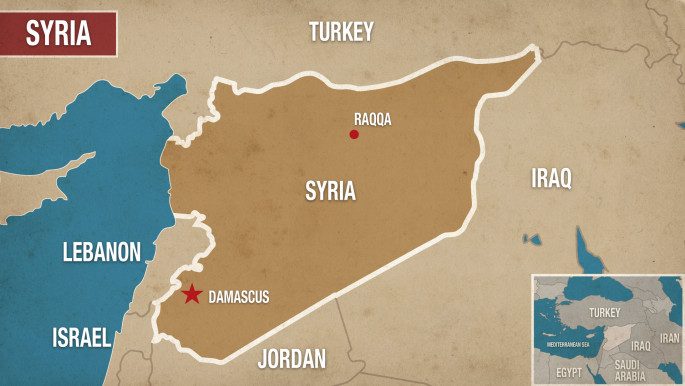War-torn Raqqa 'unrecognisable' after months long anti-IS offensive
Syrians returning to Raqqa have found a devastated war-torn landscape after a months-long offensive against the Islamic State to recapture the city.
The extremists seized Raqqa in early 2014, making it their de facto Syria capital.
Most of Raqqa, long a byword for the militants' most gruesome atrocities, is now in the hands of US-backed SDF fighters, who have been supported by waves of heavy, and deadly, airstrikes by a military coalition led by Washington.
'It's all gone'
Hammoud, a 26-year-old member of the SDF – an alliance of Kurdish and Arab fighters - was floored when he entered the battered north-eastern district of Al-Rumeilah on Monday for the first time in years.
"I used to come here a lot because my uncles lived here and the college of literature, where I studied, was here," the bony member of the SDF's media office told AFP.
"I don't even know where we are. If I got out of the car now, I wouldn't know how to go back. It's all gone. I know we're in Al-Rumeilah - but where in Al-Rumeilah, I don't know," he says.
His family home lies in Al-Maarri, an IS-held district about 500 metres to the west, and he has not seen it since fleeing Raqqa in December 2014.
"Standing or destroyed, my only wish now is to see my home, but I know that that neighbourhood hasn't been liberated yet," he says.
"My comrades told me hopefully today, it will be liberated. If my house is gone, it'll be a shock to me."
Three years after IS declared a self-styled "caliphate" across Syria and Iraq the SDF hold around 90 percent of Raqqa.
SDF fighter who are from Raqqa say it is dizzying to see neighbourhoods they had known for years being called different names by civilians who lived under IS's brutal rule.
An area called Al-Hukumah, or government, was renamed Al-Hikmeh, or wisdom, while the Al-Bassel Mosque, named after Syrian regime president Bashar al-Assad's older brother, was renamed Al-Nur.
The infamous Al-Naim roundabout where IS carried out crucifixions and beheadings was renamed Al-Jaheem, the Roundabout of Hell.
Read more: 'No childhood anymore': Bombings and beheadings haunt Raqqa's children
'Nothing but corpses'
"I was shocked when I came here. The shops are empty. It's like we went back 100 years," Hammoud says.
At the eastern entrance to the city, two large triangular flags belonging to the SDF and the Kurdish People's Protection Units (YPG) have replaced the IS flag.
"There used to be a big black flag there with the phrase everyone knows - 'the Islamic State in Iraq and Syria.' Now look at the SDF flag. Colours are coming back to Raqqa," Hammoud says.
Another SDF fighter Fahed al-Meshlebi says he was living in a camp for the displaced north of Raqqa when he decided to join the SDF's battle against IS.
He grew up in the neighbourhood of Al-Meshleb, the district where SDF fighters entered in June.
"I haven't gone to Al-Meshleb yet. I want to finish here first," he says.
"I don't know this neighbourhood anymore. The street I used to know here has been completely wiped out," Meshlebi tells AFP, saying he could barely make out "hints" of familiar shops or landmarks.
Another SDF fighter, 39-year-old Khaled, fled Raqqa with his wife and children when IS took over the city.
"I was blown away, to be honest. This isn't my neighbourhood. I went to my house -- this isn't my house," Khaled says.
"Now, there's nothing but corpses... If you don't know how to cry, come to Raqqa to learn."
He entered his old neighbourhood of Al-Daraiyah last week but didn't have the heart to tell his wife, who spent her whole life there.
"I told her the house is still standing - our things are where they were, the pictures are still hanging on the walls. I said God had somehow protected our home," he says.
"What else could I say? Let her live this lie."




